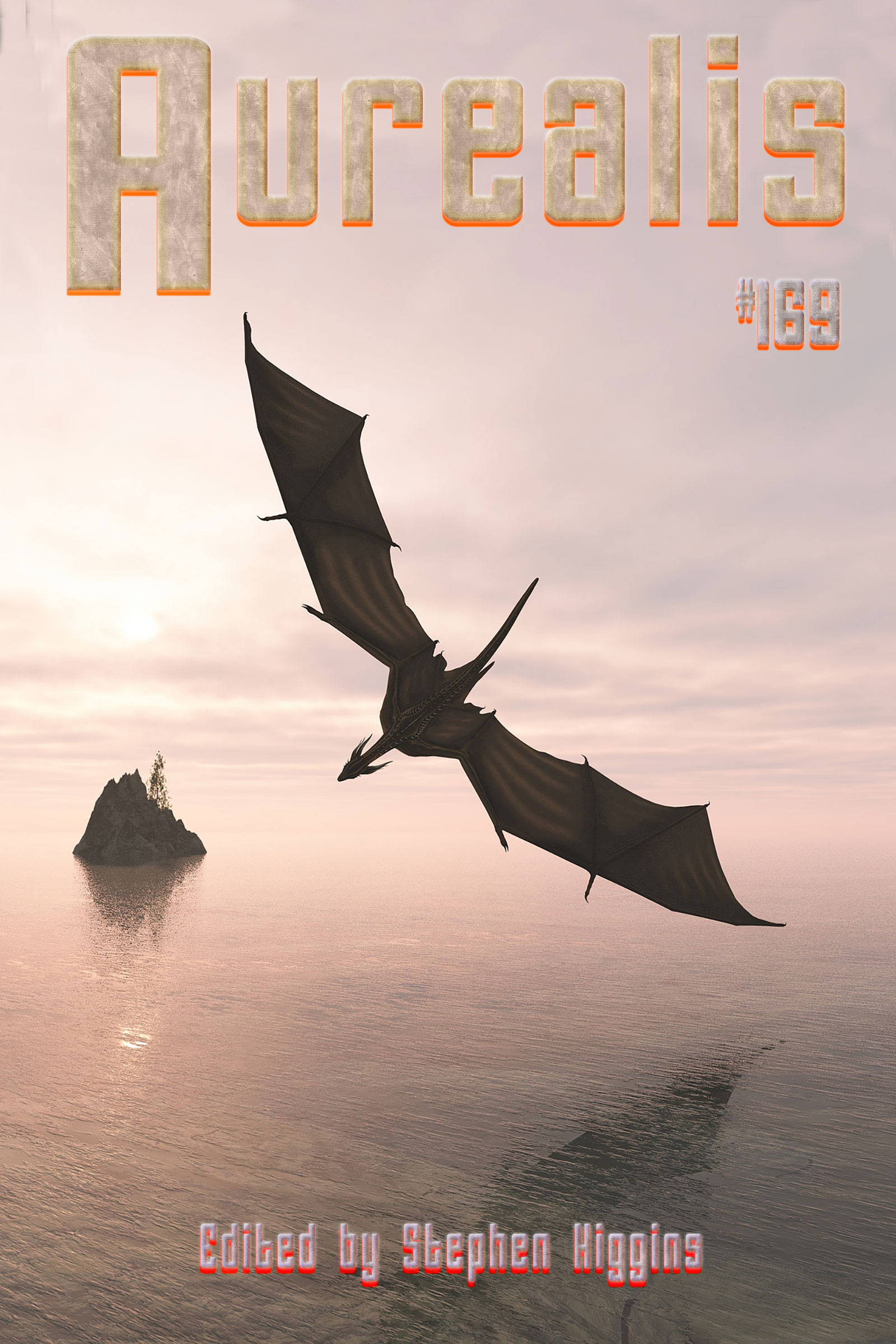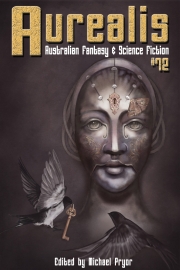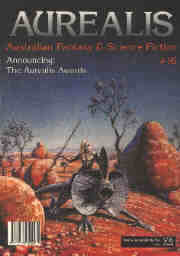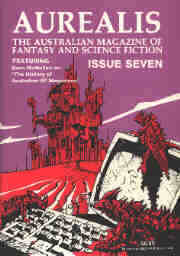Aurealis #169
$3.99
- From the Cloud — Stephen Higgins
- Finding the Words — Avril Mulligan
- The Boy and the Girl and the Friend Who Watched Them — Charlie Milne
- The Divide — Daniel Burnbridge
I recently decided to put together a collection of my stories and articles that have appeared in Aurealis over the years. Originally, I was just going to collect my stories but I’m not the most prolific writer in existence and so I thought I’d better use a wider net. I remembered that in the early days of Aurealis I wrote a string of articles for the magazine. These tended to be humorous pieces. Well, I found them funny. Anyway, having tested the waters of self-publishing with my guide to teaching (Teach… yeah I know, catchy title) and realising that there might not be a huge market for this new collection, I thought the self-publishing route would be a good way to go. I have to say, it was a lot easier than I thought it would be. The hard part is promotion. Old hands will likely already know this, but I’ve heard tales of major publishing houses expecting new authors to do a lot of their own promotion. And now I think I know why so many people do self-publish.
It doesn’t have quite the negative connotations that it used to attract and, indeed, many established authors self-publish material that perhaps does not suit their normal publishing house. It seems stupid to point out that we have been self-publishing Aurealis for decades now and it hasn’t harmed our sales, so why not publish my own books?
This type of publishing is merely a by-product of the way that publishing works these days. The same thing has happened in music. I record and release my own music. I don’t have a huge following and I mainly pursue it as a hobby. If it sells, great. It’s all a part of the great democratisation of the entertainment industry that has come on the coat-tails of technological advances. Music and books have led the way and, with the use of AI, I’m sure motion pictures will soon follow.
Instead of four main TV channels we now have tons, plus all of the YouTube channels that have content written and presented by amateurs. There are a zillion podcasts on millions of topics, written and presented by individuals rather than by major corporations. Are they any good? Well, yeah, some are. Some are fantastic. Just as some self-published books are fantastic and some independent music is fantastic.
I probably made my feelings about AI-produced material pretty clear in my last editorial in #168. I don’t like what it is doing in the music and art sectors. People are losing money because of the introduction of AI-produced artwork. Here at Aurealis, we pride ourselves on using art from real artists. I know we’re going to receive AI-produced story submissions at some stage. We’ve probably already rejected some. And I think we have to be really careful about how we allow AI to operate in the artistic fields. I don’t want someone generating music ‘like’ mine. I don’t want people knocking off stories and novels simply by coming up with some guidelines and a basic plot idea.
I like real art. I like real music, and I like real stories. But, mostly, I like real artists producing those things.
From Finding the Words by Avril Mulligan:
There are some things that are impossible to give up.
So she takes the Words out when she’s alone and recites them in a low murmur. An incantation. A spell of remembering. Each Word is a picture bursting into her mind, each Word a part of the story of her life before the forest. She gives them a chanting melody.
Father, friend, village, hug. Softly, sleeping, shout, bread.
She positions each Word carefully in her mouth. She doesn’t rush. They are precious, and there are so few left.
Cat, kiss, rush, more. Brother, sister, yours, mine.
Despite her care, a Word slips from the edges of her mouth and tumbles towards the forest floor far below. She gasps and presses her lips tightly together, climbs hurriedly over the edge of her nest and down through the branches of her tree, reaching out to try to catch the floating Word. She’s agile, quick as a bird, feet and fingers curling around the branches as she descends, but still the Word escapes her reach. She places her feet on the lowest branch just in time to see it land gently on the ground and nestle itself among the leaf litter. She feels the Word drift out of her mind, forever gone.
From The Boy and the Girl and the Friend Who Watched Them by Charlie Milne:
It was hot in the sleeping bag but cool under the pillow and a splinter of moonlight rested on his eyes. He turned over. There was sweat under his arms and on his stomach and on the other side of his knees. He didn’t like the heat but he didn’t like resting without a sleeping bag, either. He didn’t like the night-time because it reminded him of that show, Stardust, the cartoon about the prince who lived in darkness that tried to water down the sun, and he liked pears and hated apples and Rhys Pucovski was 10 years old.
He could hear his sister’s voice in the other room. The door was open, like big shark teeth. She spoke in stops and starts and stops and starts and every now and then she waited for a while.
She was talking to Henry again.
From The Divide by Daniel Burnbridge:
She was not like the other shamans.
It was true that she healed the sick and spoke to that which was beyond, but she was not an agent of that power, like the others.
They called her Mother Moon, because she had told them that was where she had come from. Of course they believed her. They had seen her fall from the sky, bright and burning. And she had told them that Earth was her sister, and that they were once one, and that Earth had been asleep for a long time, and still was.
She had told them she’d taken their form to be as they were. To have two arms, two legs, a head, all that. But that was not what she had looked like at first. At first, she had looked a lot like |Kaggen, the mantis-god. And she told them she’d learned their tongue, and had learned to live like they do, because she wanted to make her home with them, if they would let her.





